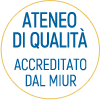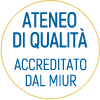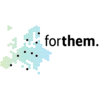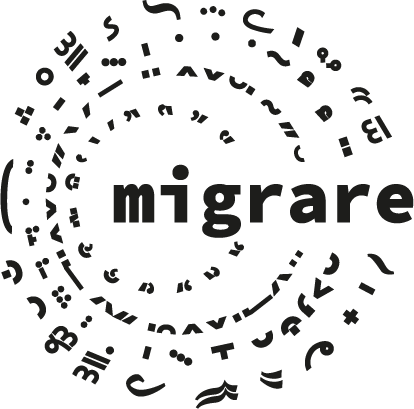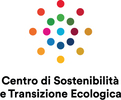DEFEP - Distance education for Future: best EU practices in response to the requests of modern higher education seekers and labor market
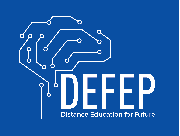 Il Progetto DEFEP, approvato nell’ambito del programma Erasmus+ KA2 Capacity Building in the field of Higher Education, mira a implementare un sistema sostenibile ed efficace di istruzione a distanza (DE) nei paesi partner dell’area orientale dell’Europa. Questo sistema permetterà di affrontare importanti sfide future che sorgono nell'ambito dell’educazione sotto due aspetti: quello legato ai cambiamenti comportamentali, personali e ideologici delle nuove generazioni e quello delle trasformazioni tecnologiche del mercato del lavoro. Al tempo stesso, un valido sistema di DE creerà tutte le condizioni necessarie per l'attuazione del principio dell'istruzione senza barriere e creerà un ambiente di apprendimento sicuro nelle realtà pandemiche e belliche odierne. Il progetto è incentrato sulla creazione di strutture dedicate all’educazione a distanza all’interno degli IIS partner, lo sviluppo di metodi e materiali didattici per l'insegnamento a distanza e la formazione del personale docente.
Il Progetto DEFEP, approvato nell’ambito del programma Erasmus+ KA2 Capacity Building in the field of Higher Education, mira a implementare un sistema sostenibile ed efficace di istruzione a distanza (DE) nei paesi partner dell’area orientale dell’Europa. Questo sistema permetterà di affrontare importanti sfide future che sorgono nell'ambito dell’educazione sotto due aspetti: quello legato ai cambiamenti comportamentali, personali e ideologici delle nuove generazioni e quello delle trasformazioni tecnologiche del mercato del lavoro. Al tempo stesso, un valido sistema di DE creerà tutte le condizioni necessarie per l'attuazione del principio dell'istruzione senza barriere e creerà un ambiente di apprendimento sicuro nelle realtà pandemiche e belliche odierne. Il progetto è incentrato sulla creazione di strutture dedicate all’educazione a distanza all’interno degli IIS partner, lo sviluppo di metodi e materiali didattici per l'insegnamento a distanza e la formazione del personale docente.
Il progetto è coordinato dalla Petro Mohyla Black Sea National University (Ucraina) ed è realizzato in collaborazione con il Dipartimento di Scienze Umanistiche di UNIPA ed altri istituti universitari di Germania, Moldavia e Ucraina.
Link https://defep.chmnu.edu.ua/
PARTNERS: Black Sea National University, Grantholder and Project Coordinator, Ukraine; Saarland University, Germany; University of Palermo, Italy; King Juan Carlos University, Spain; Moldova State University, Moldova; Technical University of Moldova, Moldova; V. N. Karazin Kharkiv National University, Ukraine; Chernihiv Polytechnic National University, Ukraine; Lviv National Agrarian University, Ukraine; Vadym Hetman Kyiv National Economic; University, Ukraine; Uman National University of Horticulture, Ukraine
Team Members (Dipartimento di Scienze Umanistiche dell’Università degli Studi di Palermo): Assunta Polizzi (main contact person); Floriana Di Gesù (team member); Luisa Amenta (team member); Ambra Pinello (team member); Oleg Rumyantsev (team member); Roberta Palleschi (Dipartimental contact person).
The project aims to implement a sustainable and effective system of distance education (DE) as a separate and independent form of education in the activities of the Eastern Partnership countries. A well-designed system of DE in the higher education institutions (HEIs) will address many important issues related to future challenges that arise in education under the behavioral, personal, ideological changes of generations and technological transformations of the labor market. At the same time, the system of DE in HEIs creates all the necessary conditions for the implementation of the principle of barrier-free education and creates a safe learning environment in today's pandemic realities.
The existing system of DE in Ukrainian and Moldovan HEIs will be improved and comprehensively reorganized taking into account the experience of European partners universities. The Project is focused on the creation of institutional departments in HEIs, the development of distance teaching methods and teaching materials, and training of teaching staff. In the complex, it will contribute to the systematic design of DE, as a separate independent branch of education, which will develop the professional competencies and soft skills of students, by the needs of the labor market.
The project is conditionally divided into eight stages: 1. Establishment of project management; 2. Background research of DE; 3. Development of methodology for providing DE; 4. Development of institutional and organizational support of the DE; 5. Improvement of the DE system; 6. Testing the DE system; 7. Monitoring and quality assurance of the DE system; 8. Ensuring sustainability of the project in Ukraine and Moldova
The expected results are the following: 1) creation of structural subdivisions in HEI partners of DE; 2) creation of a training product for the DE training; 3) development and methodological support of educational courses; 4) creation of laboratories for DE; 5) pilot launch of distance learning MAs programs.




